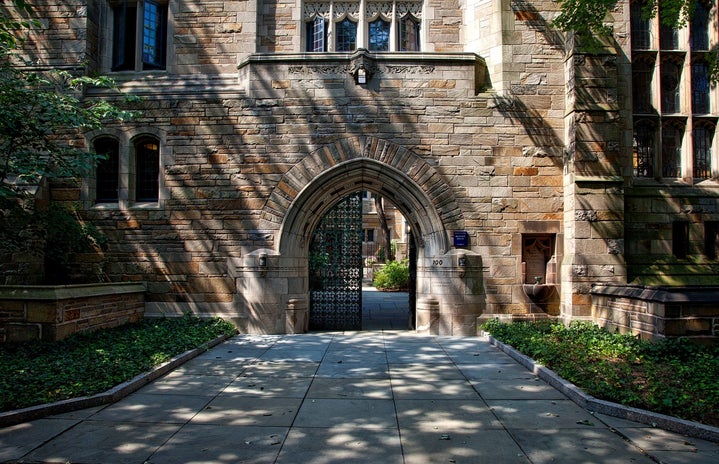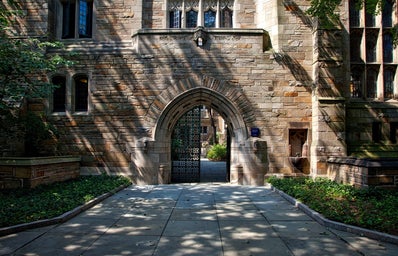It’s no secret that members of the LGBTQ+ community struggle with higher rates of mental illness than the general population. In fact, people who identify as part of the LGBTQ+ are nearly three times more likely to experience mental illness than their non-LGBTQ+ peers, as reported by the National Alliance on Mental Illness (NAMI). This is an issue experienced all over the United States, including at Elizabethtown College.
A study published in the Journal of Adolescent Health by the RAND Corporation suggested that rates of “severe psychological distress” amongst college students who identified as LGBTQ+ was 26%, which was statistically significant when compared to their non-LGBTQ+ peers, who were at 18%. LGBTQ+ students also reported more mental health related academic troubles and overall high stress levels.
In 2014, Dr. Andy Dunlap, associate professor of Social Work at E-Town, conducted research at Elizabethtown College about the climate of support for LGBTQ+ students on campus. While this research is now somewhat outdated, Dr. Dunlap believes it’s still important to consider.
Dr. Dunlap’s research found that people who identified as allies of the community thought there was significantly more support than LGBTQ+ students, staff, and faculty did. Students reported hearing micro-aggressions like the “f-slur” as much as multiple times a day in dorms and public spaces. “It’s heterosexism on a day-to-day, hour-to-hour basis,” Dr. Dunlap said.
“Coming to E-town feels like traveling back in time,” Dr. Dunlap said. He described E-Town as conservative, but not necessarily politically right. “More conservative in the slow to change way,” he sighed. He described the shift from more liberal places to E-town as “cold water shocking,” and went on to say that he’d “Even heard stories of people who were out in high school, but went back into the closet at E-Town.”
One of E-Town’s main hub for LGBTQ+ students is Stonewall Hall, the Living Learning Community themed for members of the community. The office of Residence Life advertises Stonewall as “[A] safe space to dialogue about issues, questions, and current topics.”
Caitlin Olivas, a junior and a recent RA of Stonewall, spoke to the importance of Stonewall for the LGBTQ+ community. “A lot of people in the LGBTQ community don’t come from safe, supportive homes,” she said, “but Stonewall provides that. It’s always been a home away from home for me.”
Sophmore Morgan Smith, values the community that Stonewall provides for the community on campus. “Probably without Stonewall, I wouldn’t have made friends,” she said.
Of course, not all members of the community live in Stonewall Hall. Some students, like sophomore Ryan Strohl, spoke to the feeling of living in a place that isn’t filled with LGBTQ+ people in his freshman year. “When I’m in [my dorm],” she said, “I don’t necessarily feel like my gayness matters. On Stonewall, it’s like a place to celebrate everyone and their gayness. It’s a completely different vibe. It’s welcoming.”
Another important resource for LGBTQ+ students is the Allies Club, E-town’s Gay Straight Alliance. They describe themselves as “[An] alliance that strives to build a community among all people regardless of sex, gender identity, gender expression, or sexuality. Allies works together to create an open and welcoming environment of support, inclusion, and acceptance.
“Our events, [like] National Coming Out Day, relays the message to other students who may be struggling with their sexuality or coming out that there are people on this campus that are just like them,” said CeeCee Stevens, the previous vice president of Allies. “It also sends a message that we’re there for them and that we’ve been in their shoes.”
Unfortunately, not all members of the community feel at home at Allies. Many are turned off by the name, which they feel indicates that the club is for heterosexual, cisgender allies, not for members of the community. “It’s not like I feel unwelcome,” said sophomore Hannah Soden. “But I feel like it’s called Allies for a reason. There’s no actual talk about gay issues. We just do crafts and raise money.”
Several students spoke to their desire for more accessible counseling on campus. While E-Town does provide counseling services free to students, the counselors’ time is often limited and a student can generally only see a therapist every two weeks.
Bruce Lynch, the director of Counseling Services, spoke to this limitation. “The frequency and duration of individual sessions…is based on the clinical needs of the student and is influenced at times by the total volume of students that we are seeing.”
In addition to this, E-Town no longer has a psychiatrist. Previously, an outside consultant had visited E-Town once a month, and was usually booked a semester in advance. Now, the school has no psychiatrist at all. Dr. Lynch emphasized the need for a psychiatrist, but said that there was a shortage of psychiatrists in the area. “We are persisting with our search,” he said.
Despite Counseling Service’s efforts, this is not enough for some students. Morgan Smith makes the trek back to her house every two weeks to see her therapist and psychiatrist. “It’s really frustrating to go back and forth from home,” she claims.
While E-Town does have these spaces available to the community, many students expressed the need for more clarity from the school about exactly what sorts of support the school provides. Junior Delaney Dammeyer spoke to her own personal experiences. “For some people, I think it’s really hard to find the community here,” she said. “It took me a year.”
Gabi Kraus, a junior Japanese major, also weighed in the transparency of E-town’s support for the community. “I feel like there are resources there if you look for them, but it isn’t necessarily super obvious,” they said.
Briar Tarbert, a recent graduate, had a more cynical approach. “I think they try. I think there are things that could be done better,” he said with a sigh. “But compared to when I first starting going here, there’s a lot more.”
Tarbert transitioned while here at E-Town, and expressed the need to make support for transgender students more accessible. He said that he thought that the process for name changes was a little complicated. “[We need to] make sure those avenues are open. Make sure there are spaces for trans students to feel safe and welcome, both in terms of gender and name usage.”
As E-Town gradually becomes more aware of the support that its LGBTQ+ students need, the campus appears to be going in an accepting direction. Allies is now being run by Strohl and Soden, who promise a more inclusive atmosphere that celebrates queerness. In response to recent bias-related events, Residence Life has responded with support for the community. E-Town is still struggling to support its LGBTQ+ community, but it continues to improve each day.



